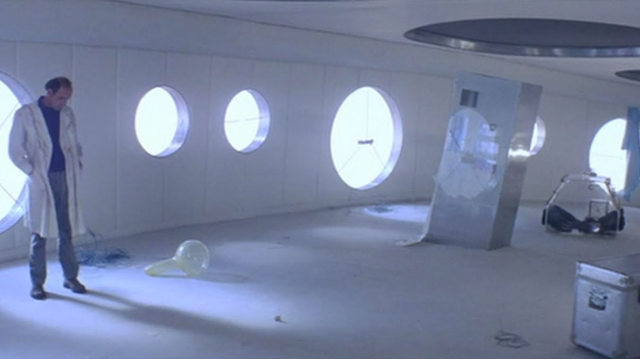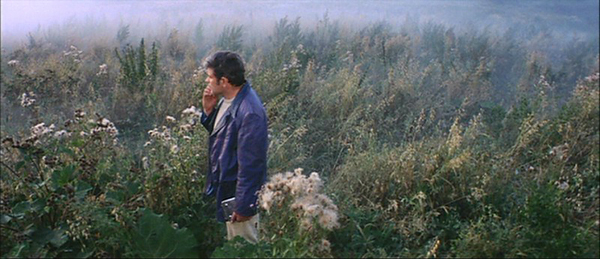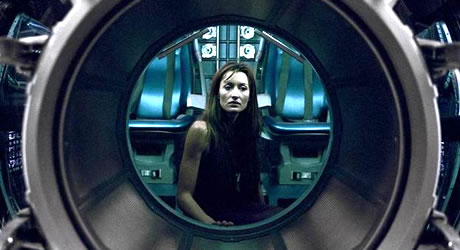From Moving Image Source [movingimagesource.us], posted March 5, 2009. The last time I checked, the box set Cinéma Cinémas was still available from French Amazon, for 25.56 Euros. — J.R.

How does one distinguish American cinephilia from the original, hardcore French brand? Based on an exchange I had with French critic Raymond Bellour and several other friends a dozen years ago — a round of letters first published in the French film magazine Trafic that later grew into a collection in English that I co-edited with Adrian Martin, Movie Mutations: The Changing Face of World Cinephilia — there’s some disagreement about how serious a role French cinema actually plays in “classic” (i.e., French) cinephilia. According to Raymond, spurred in part by remarks from the late Serge Daney — a mutual friend and the founder of Trafic — modern French cinephilia was from the outset basically American, as suggested by the archetypal question, “How can one be a Hitchcocko-Hawksian?”:
It’s a question of theory, but even more of territory. This is what necessarily divides me from Jonathan, in whom cinephilia was born, like in everyone else, through the nouvelle vague, but who, as an American, takes the nouvelle vague itself as an object of cinephilia — whereas the cinephile, in the historical and French sense, trains his sights on the American cinema as an enchanted and closed world, a referential system sufficient to interpret the rest. Read more
From the Chicago Reader (November 29, 2002). Soberbergh’s Contagion confirms his bottomless cynicism, as well as the cynicism of those reviewers who seem to like him because he expresses their jaundiced views. I continue to find that same cynicism lethally dull and all too familiar. — J.R.
SOLARIS
* (Has redeeming facet)
Directed and written by Steven Soderbergh
With George Clooney, Natascha McElhone, Viola Davis, Jeremy Davies, and Ulrich Tukur.
It’s easy to scoff at Monarch Notes, but before I quit graduate school in disgust I reached for them every time I thought a professor might be ruining a literary masterpiece for me — and vowed to read the work later, on my own time, for my own reasons. As a teacher, I also used them when I suspected a student of plagiarism, and they did help me spot an offender or two. But having read the outlines, I rarely read the works — the crib had robbed me of the desire.
If you haven’t seen Andrei Tarkovsky’s 1972 SF masterpiece Solaris, can’t see it Friday night, November 29, on Turner Movie Classics, and don’t want to watch the just-released DVD or wait for the Music Box’s rerelease in January, you might find Steven Soderbergh’s remake intriguing and compelling, because the story it tells is certainly haunting. Read more
From the Chicago Reader (January 12, 1990). I was disappointed to hear from one of the audio commentators on the Criterion DVD of Solaris that he regarded the lengthy highway sequence as one of the film’s “weaker” sections; for me it’s one of the highlights, both as a provocation and as a “musical” interlude that becomes an occasion for hypnotic drift. — J.R.

SOLARIS **** (Masterpiece)
Directed by Andrei Tarkovsky
Written by Friedrich Gorenstein and Tarkovsky
With Donatas Banionis, Natalya Bondarchuk, Yuri Jarvet, Vladislav Dvorzhetsky, Anatoly Solonitsin, and Sos Sarkissian.

“We take off into the cosmos, ready for anything: for solitude, for hardship, for exhaustion, death. Modesty forbids us to say so, but there are times when we think pretty well of ourselves. And yet, if we examine it more closely, our enthusiasm turns out to be all sham. We don’t want to conquer the cosmos, we simply want to extend the boundaries of Earth to the frontiers of the cosmos. For us, such and such a planet is as arid as the Sahara, another as frozen as the North Pole, yet another as lush as the Amazon basin. Read more




